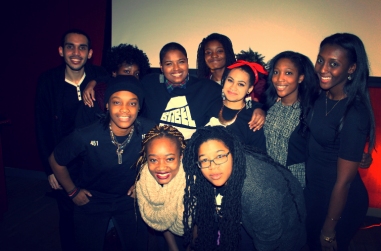
ASILI , the Black Student Alliance on campus, is having multiple events this month in celebration.
By Junghsuh Kim
Black History Month is an annual observance that commemorates the history and role of Black Americans in U.S. history. It is a celebration of their achievements and is celebrated in the United States, Canada and the United Kingdom.
The origins of Black History Month dates back to 1915, 50 years after the 13th Amendment abolished slavery in the United States. In September 1915, Harvard history professor Carter Woodson and prominent minister Jesse Moorland founded the Association for the Study of Negro Life and History (ASNLH).
This organization was dedicated to researching and cataloging achievements made by black Americans. The ASNLH sponsored a national Negro History week in 1926, selecting the second week of February because of Abraham Lincoln and Frederick Douglass’s birthdays. This inspired many different schools and communities across the country to celebrate and remember the achievements of black Americans.
As a result of the national Civil Rights Movement and a growing awareness of African American identity, Negro History Week transformed into Black History Month in the late 1960’s. President Gerald R. Ford publicly recognized Black History Month in 1976. Ever since President Ford’s endorsement, Americans have continued to celebrate Black History Month.
Each February, Black History Month is designated a specific theme endorsed by the president. Last year’s theme was “At the Crossroads of Freedom and Equality: The Emancipation Proclamation and the March on Washington. “
The theme for this year’s Black History Month is “A Century of Black Life, History and Culture,” which will celebrate the major influences black Americans have had in music, art and literature that are appreciated by the global community. This year, Americans are acknowledging the many cultural gifts given to the U.S. by the black community like jazz, poetry and an appreciation for African-American art. Black Americans have also dominated both individual and team sports including baseball, track-and-field, football, boxing and basketball.
In terms of celebrating cultural achievements, there is no better achievement than that of the Harlem Renaissance. This was a cultural, social and artistic explosion that took place at the end of World War I. The movement included many new cultural expressions across urban areas in different regions of the United States.
To celebrate Black History Month there is a plethora of different types of events all across New York City. The Resorts World Casino New York City will hold special shows this month. On Feb. 11, Black Spectrum will play a tribute to Marvin Gaye and on Feb. 25 there will be another tribute to Aretha Franklin. The New York Public Library’s Schomburg Center for Research in Black Culture will also hold special exhibits and programs for the month of February, such as “From Dapper to Dope: The Exquisite and Enduring Style of Harlem Men” on Feb. 12, “American Policing: Lessons of Resistance” on Feb. 18 and Film at the Schomburg: An African City on Feb. 19.
The New York Historical Society located on Central Park West will showcase a powerful photo exhibit by Stephen Somerstein this month. The photo exhibit is titled “Freedom Journey 1865: Photographs of the Selma to Montgomery March,” featuring historical images from the Selma to Montgomery Civil Rights March of January, 1965.
For all movie lovers, Selma is still in theaters and ranks 98 percent on Rotten Tomatoes. Selma follows the story of Martin Luther King, Jr. and the efforts he and his followers put into advocating for the signing of the Voting Rights Act of 1965. This is a great way to become more informed about the Civil Rights Movement.
Although Black History Month has been celebrated for decades, many people question whether its purpose is still relevant. People have called into question the need to highlight current challenges facing the black communities rather than only focusing on the achievements of the past. It is definitely important to recognize the major milestones and key figures in black history; however, it is just as important to look beyond the successes. Issues like unequal school systems, institutionalized poverty, health-care disparities and job discrimination are proof that we as a nation must continue to protect and fight for the rights of all citizens.
Black History Month serves to connect Americans to the vast achievements and struggles the black community has overcome. It is addressing the great progress we have made as a country, while at the same time acknowledging that we must continue to progress.
